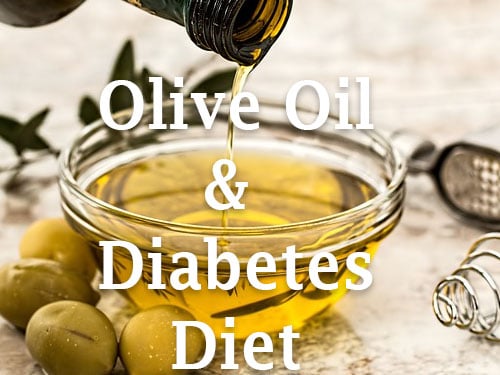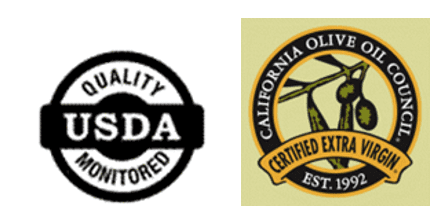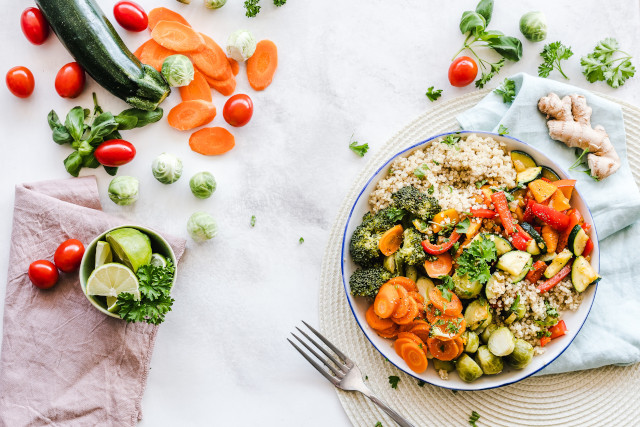Olive oil is a staple of the highly recommended Mediterranean diet. Since the Mediterranean diet is so highly recommended, everyone should go right to their neighborhood grocery store and use olive oil for cooking. Simple, right? Well, in one sense, yes…but is anything ever really that simple?
Nutritional Facts about Olive Oil
1 tablespoon of olive oil contains 14 grams of total fat, 2 grams of saturated fats, no fiber, no sugar, no cholesterol and no fiber. It is a good source of Vitamins E and K and no protein—so all the calories come from fats.[1] So far, nothing to get excited overly excited about, is there?
What makes olive oil so good to use is the types of fat it contains. It contains 1318 mg of omega-6 fats and 103mg of omega-3 fats. In addition, it contains over 10 grams of either mono- or poly-unsaturated fats—the healthier types of fats. Olive oil also has almost 30 g of phytosterols, a type of plant substance that is chemically similar to cholesterol but helps maintain heart health because it inhibits the absorption of cholesterol from food and lowers the amount of LDL cholesterol, the “bad” cholesterol that is associated with heart disease.[2]
Finally, olive oil is rich in antioxidants such as oleocanthal and oleeuropein—those plant substances that can help reduce the oxidative damage caused to our bodies by high levels of blood sugar.
What is the Best Form of Olive Oil?
It does get upsetting, but the fact is that there are lots of people out there making and selling olive oil with less than 100% olive oil! Olive oil has become so popular, there are many forms of olive oil that are not pure olive oil.
So the first thing to do is to buy reputable, well- known brands of olive oil and only buy 100% extra virgin olive oil—extra virgin olive oil is pressed—it is not subjected to any heat or any chemicals, it is simply pressed. Consumer Reports tested 23 different olive oils a few years ago—only 9 passed.[3]
You can check out the testing sites or look for these labels indicating that the companies voluntarily have their olive oil tested for purity.
If you want more information read these articles:
How can Olive Oil Help in Diabetes?
Olive oil can help in diabetes in a number of ways: [4]
- Olive oil is, as mentioned, high in antioxidants. Antioxidants can help diminish the damage that is due to the oxidative stress caused by high levels of sugar in the blood—and in that way, reduce the risk of the complications of diabetes, including diabetic neuropathy, retinal neuropathy, high blood pressure and heart disease.
- Olive oil is an anti-inflammatory food. Since inflammation is at the root of most if not all chronic diseases, using olive oil can reduce this inflammation and the damage that long-term inflammation can inflict on cells. Long-term inflammation is thought to play an important role in diabetes and the complications of diabetes. The primary substance in olive oil that acts as an anti-inflammatory agent is oleocanthal, which acts on the COX enzyme system in a way similar to non-steroidal anti-inflammatory drugs (NSAIDs) such as ibuprofen.[5], [6]
- Olive oil reduces the risk of vascular and heart disease by:
- Reducing inflammation
- Protecting LDL-cholesterol (often called “bad” cholesterol) from oxidative damage (which makes LDL-cholesterol “bad”)
- Reduces the risk of blood clots
- Lowers blood pressure
- Strengthens the lining of the blood vessels
- Potentially protecting against Alzheimer’s disease—often called Type III diabetes
Overall, extra virgin olive oil is highly recommended – you can use it on salads, drizzle it on breads and use it in cooking, though using lower heats may provide the best benefits because there is less chance of heat damage to the fats in olive oil.
We hope you learned how to use olive oil in your diet and good luck with your health!
TheDiabetesCouncil Article | Reviewed by Dr. Jerry Ramos MD on June 06, 2020
References
- http://nutritiondata.self.com/facts/fats-and-oils/509/2
- http://lpi.oregonstate.edu/mic/dietary-factors/phytochemicals/phytosterols
- http://www.consumerreports.org/cro/magazine/2012/09/how-to-find-the-best-extra-virgin-olive-oil/index.htm
- https://authoritynutrition.com/extra-virgin-olive-oil /
- [5] Lucas, Lisa, Aaron Russell, and Russell Keast. "Molecular mechanisms of inflammation. Anti-inflammatory benefits of virgin olive oil and the phenolic compound oleocanthal." Current pharmaceutical design 17.8 (2011): 754-768.
- http://www.nature.com/news/2005/050829/full/news050829-11.html







